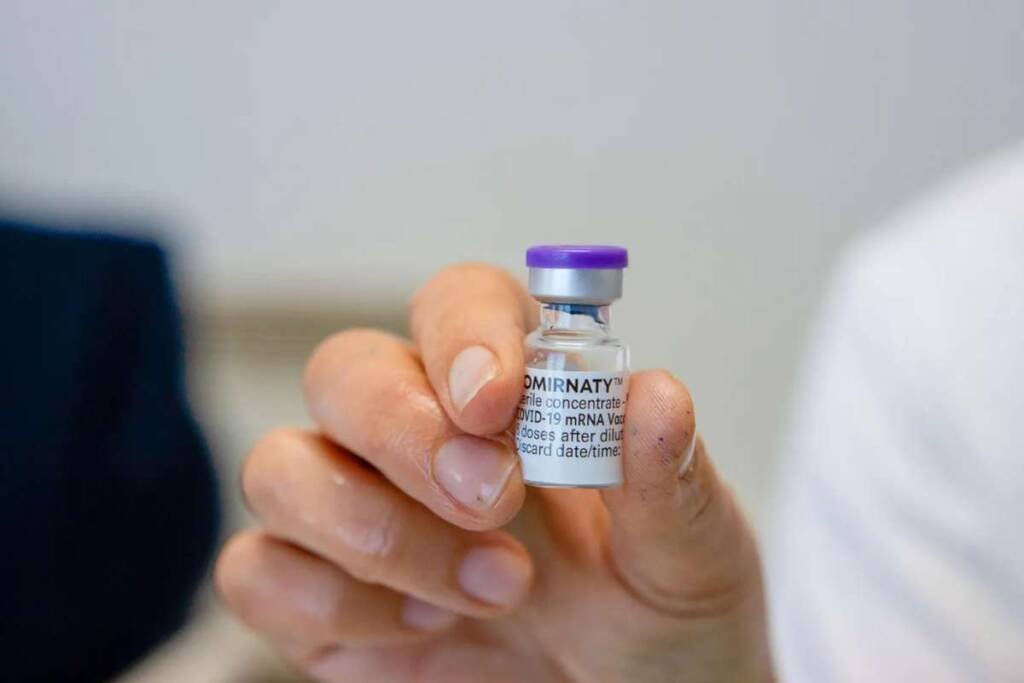As the revenues from COVID-19 products fluctuate, mostly experiencing a decline, Pfizer is now considering implementing cost-cutting measures.
During a conference call on Tuesday, Pfizer’s chief, Albert Bourla, Ph.D., openly acknowledged the higher level of uncertainty surrounding the demand projections for their COVID-19 products compared to the rest of their business.
Although shifting Paxlovid and Comirnaty to a traditional commercial market could provide some help, there remains a significant amount of uncertainty. In turn, “we are also preparing to have the ability to adjust our 2024 total cost base” to align with future COVID needs, the CEO added. “In fact, we have already identified specific areas where we can make adjustments primarily within our COVID-19 cost base.”
During the second quarter, Paxlovid’s worldwide sales amounted to just $143 million, representing a drastic 98% decrease from the $8.1 billion it earned during the same period in 2022. Similarly, the MRNA vaccine Comirnaty generated $1.4 billion in sales, down approximately 83% from the $8.8 billion it made in the second quarter of the previous year.
Related: Less Than Anticipated Supply Impact From Pfizer’s Tornado-Damaged Factory
Despite these challenging numbers, Pfizer reported total second-quarter revenues of $12.7 billion, which is a 5% increase when excluding contributions from Pfizer’s COVID-19 portfolio. However, when accounting for Paxlovid and Comirnaty, the revenues saw a staggering 53% operational decline.
Pfizer’s chief financial officer, David Denton, further elaborated on the cost-cutting plan during the conference call. The company plans to share more details about potential cost cuts in upcoming earnings calls.
“We are well aware that our 2023 profit outlook is currently being dampened by incremental cost in support of our launches as well as higher R&D investments aligned with the company’s current revenue base. Adding that Pfizer remains “committed to both defending and growing our overall level of profitability.”
– David Denton, chief financial officer
Regarding recent Pfizer layoffs in Illinois, it remains unclear whether they are connected to these potential cost-cutting measures, as the company has not provided additional information in response to inquiries.
Pfizer’s latest quarter performance was deemed “mixed” by Lee Brown, global sector lead for healthcare at research firm Third Bridge. While the company’s sales missed consensus by about $700 million (approximately 5%), its earnings per share surpassed consensus by 9 cents (15%).
Despite the mixed results, Brown expressed optimism about Pfizer’s future due to its strong launch momentum, which includes 11 product debuts in the past 18 months.
Given the mixed performance, Pfizer is adjusting its revenue forecast for 2023, narrowing it to a range between $67 billion and $70 billion, down from the previously anticipated potential of up to $71 billion.
Looking at some of Pfizer’s other franchises, the Prevnar vaccine family experienced a disappointing 2% decline in sales for the quarter, despite the launch of Prevnar 20 in children, according to Third Bridge’s Brown.
On the positive side, heart medication Vyndaqel demonstrated significant year-over-year growth of 42%, reaching sales of $782 million. Additionally, revenues from inflammatory drug Xeljanz grew by 11% to $469 million, while breast cancer medication Ibrance maintained relatively stable sales, slipping 6% to $1.2 billion during the period.





























